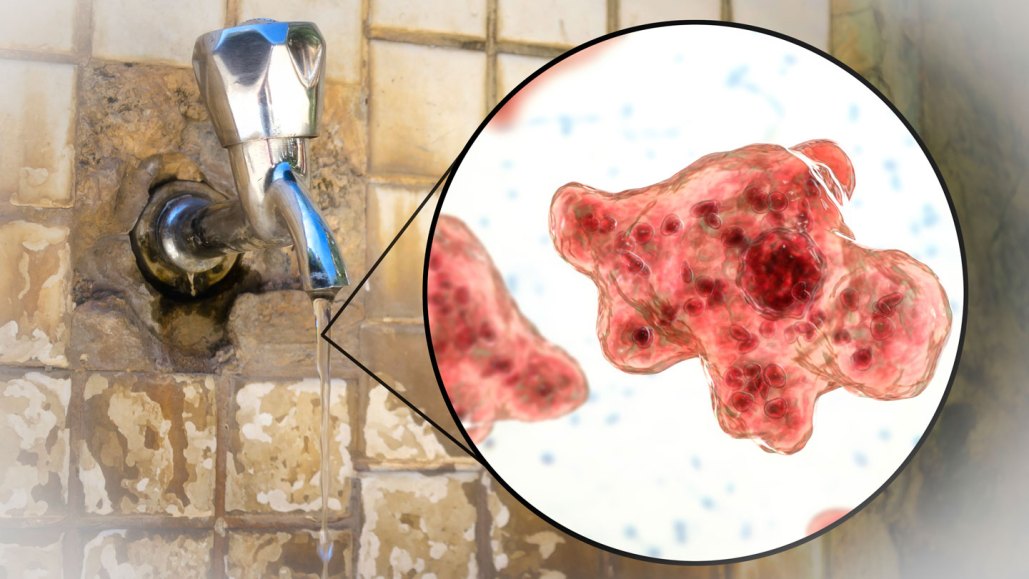Avoid using unsterilized tap water to rinse your sinuses to prevent brain-eating amoebas.

Relief for sinus congestion may be provided by nasal rinses. However, in some rare instances, the use of an inappropriate liquid could lead to infections from lethal brain-eating amoebas.
When the sinuses are washed with tap water that has not been sterilized, people might be exposed to Acanthamoeba and Naegleria fowleri. These are amoebas typically found in freshwater bodies like lakes and rivers, but also residing in tap water. These single-celled organisms may lead to skin conditions, infections of the eye or lung, and even fatal brain infections.
According to researchers from the U.S. Centers for Disease Control and Prevention, a probable cause of rare Acanthamoeba infections in 10 Americans (with most cases in the last decade) is this practice. They reported their findings in Emerging Infectious Diseases on March 13. Tragically, three of these cases resulted in death.
Separately in Pakistan, a 22-year-old who practiced a religious ritual involving sinus rinsing with tap water was infected by N. fowleri. These amoebas usually cause fatal brain infections, but early diagnosis and aggressive treatment saved the man's life. He is one among only eight known survivors of N. fowleri brain infections globally, doctors from PNS Shifa Hospital and Aga Khan University in Karachi reported on March 13 in Emerging Infectious Diseases.
These types of infections are not common. Only between three and 12 individuals in the United States are affected by Acanthamoeba each year. Yet, approximately 82 percent of these cases are fatal. Roughly three N. fowleri infections are reported annually in the United States.
One or more conditions that impacted their immune systems, such as cancer or HIV/AIDS, were present in all 10 subjects of the CDC study. Some had been rinsing their nasal passages for years, while one person contracted the infection after only two weeks of rinsing. Four cases reported using unsterilized tap water, while one used sterile water but soaked the rinsing instrument in unsterilized tap water. The type of water used in the remaining cases was not identified.
Although rare, these instances show that some people may be prone to amoeba infections if they use unsterilized tap water, according to the researchers. They suggest using distilled, sterile, or filtered water or tap water that has been boiled for a minimum of five minutes and then cooled for sinus rinses.




